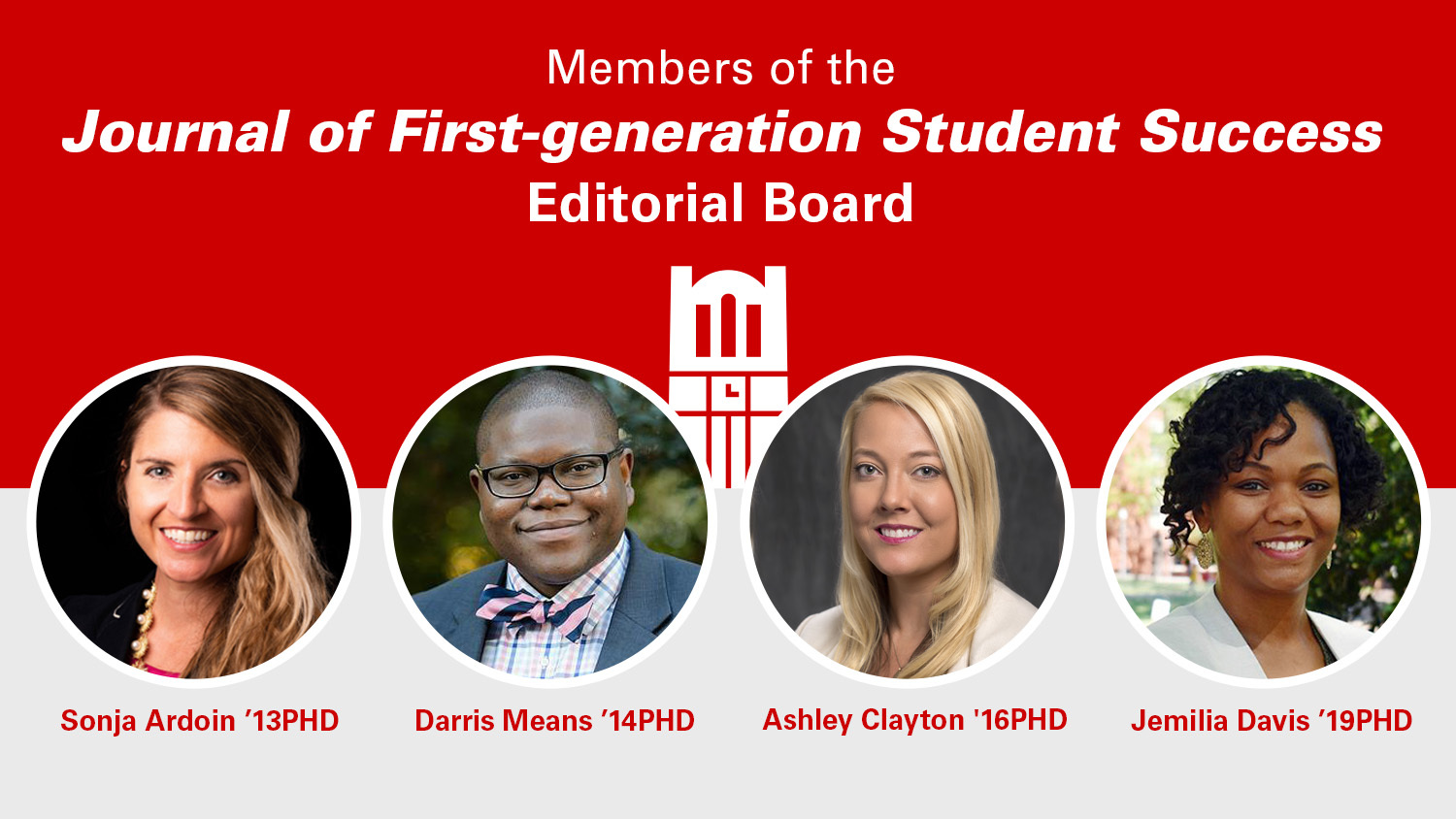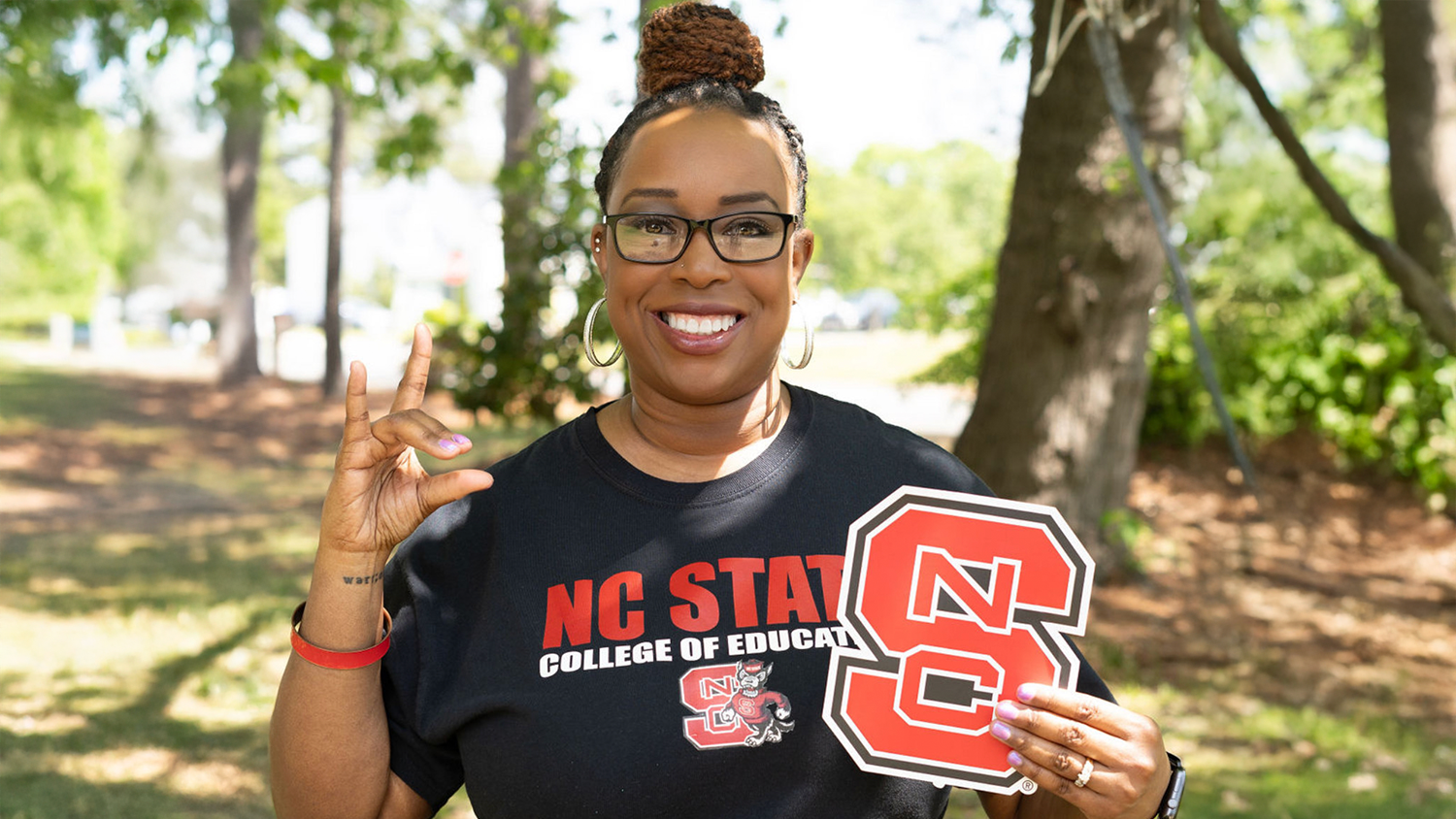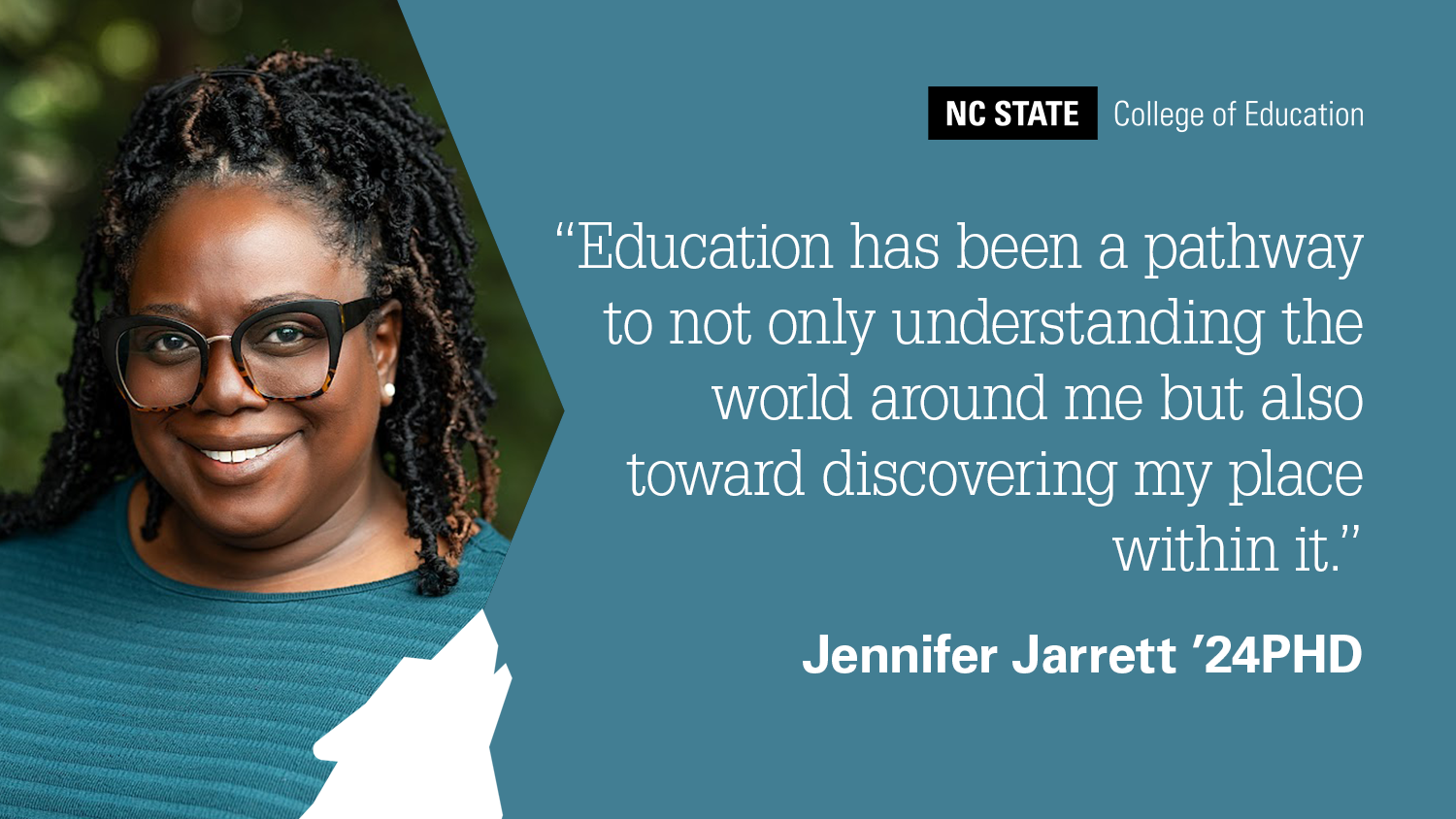Higher Education Alumni to Serve on Inaugural Editorial Board for Journal of First-generation Student Success

Four higher education doctoral program alumni will serve on the inaugural editorial board for the Journal of First-generation Student Success, a new publication of the National Association of Student Personnel Administrators (NASPA) – Student Affairs Administrators in Higher Education.
Sonja Ardoin ‘13PHD, Ashley Clayton ‘16PHD, Jemilia Davis ‘19PHD, and Darris Means ‘14PHD, will serve as four of 19 on the journal’s editorial board. As members of the editorial board, they will review manuscripts submitted to the journal for publication, offer feedback through the peer-review process and provide recommendations to the authors and editors.
“As a first-generation college graduate myself and as someone who studies first-generation college students, I wanted to be a part of creating an outlet specifically for research and scholarship about this population to engage in conscious-raising and help share information with higher education institutions, and those who work at them, about how to better serve students who will be the first in their families to earn a four-year degree in the U.S.,” said Ardoin, an assistant professor of student affairs administration at Appalachian State University
The Journal of First-generation Student Success, which is managed by the Center for First-generation Student Success, will focus on first-generation college students and their journeys to and through higher education. The journal “seeks to publish practice articles that are grounded in research and literature and, reciprocally, research articles that speak to practice.”
“I am honored to serve on the inaugural editorial board. I believe that this journal is very important and timely,” said Clayton, the Jo Ellen Levy Yates Endowed Assistant Professor of Higher Education at Louisiana State University. “First-generation status cuts across race, gender, age and other demographic factors. Therefore, this journal will inform policy and practice for students from numerous backgrounds who are first-generation in college.”
The journal will encourage and accept traditional scholarship articles, but “articles that prioritize innovative solutions and advanced thought that disputes deficit-based conversations while propelling an asset-based, evidence-driven national narrative, are welcome.”
Davis, who serves as director for strategic initiatives and external relations for the Belk Center for Community College Leadership and Research, a part of the NC State College of Education, was attracted to being on the inaugural board by “being able to create a fair and just experience for the researchers and voices who want to share their work and perspectives through this journal.” Knowing that her role would not only celebrate traditional research but would give her the opportunity to create new systems was important.
“There is so much we can learn about lifting up the voices of our first-generation students, but also holding our leaders accountable for creating spaces where they can thrive. We lose so many voices in our research and scholarship in the complex systems that are not built for diverse approaches to truth-telling and/or discovering,” Davis said. “I’m so excited to be part of an esteemed group to develop a new way to highlight what matters for the students who matter.”
Means, who is a first-generation college student, serves as an associate professor in educational foundations, organizations, and policy at the University of Pittsburgh, where he researches postsecondary education access and success for rural students, Black students, students from low-income backgrounds and first-generation college students. He also conducts research on science education and equity for Black students.
Currently, the board is working on building up policies and procedures, while preparing for the launch of the first-ever issue. The term for an editorial board member runs from July 1, 2020, through March 31, 2023.
- Categories:


